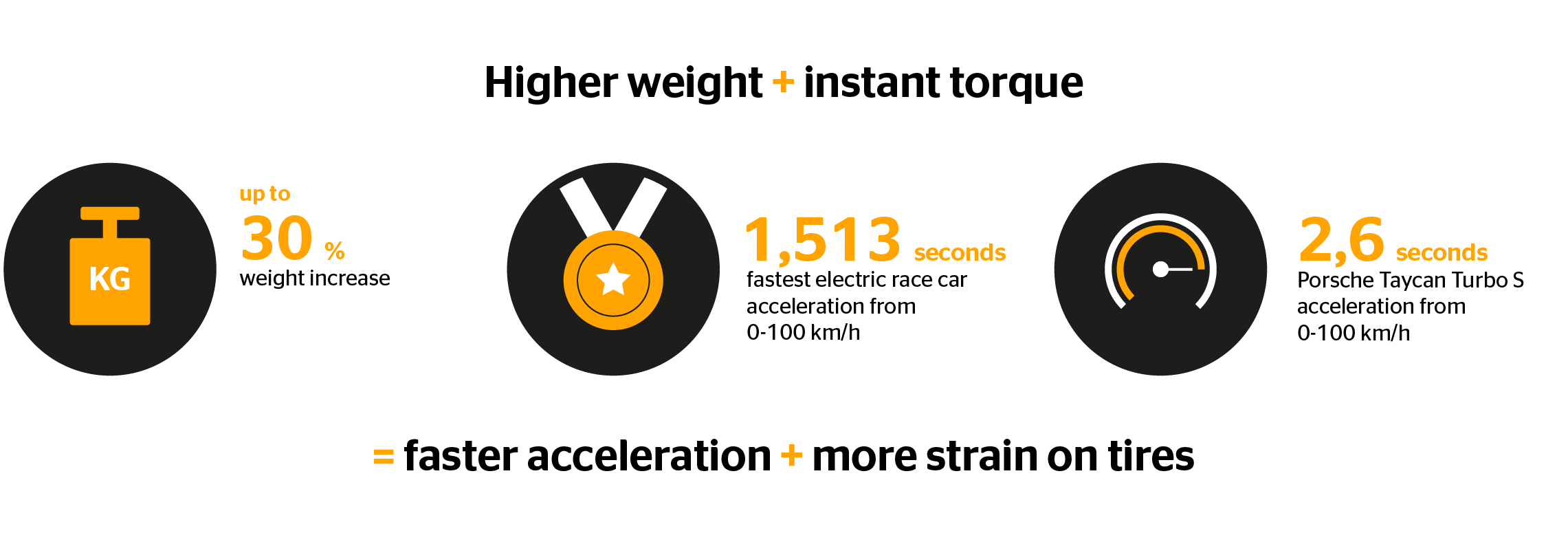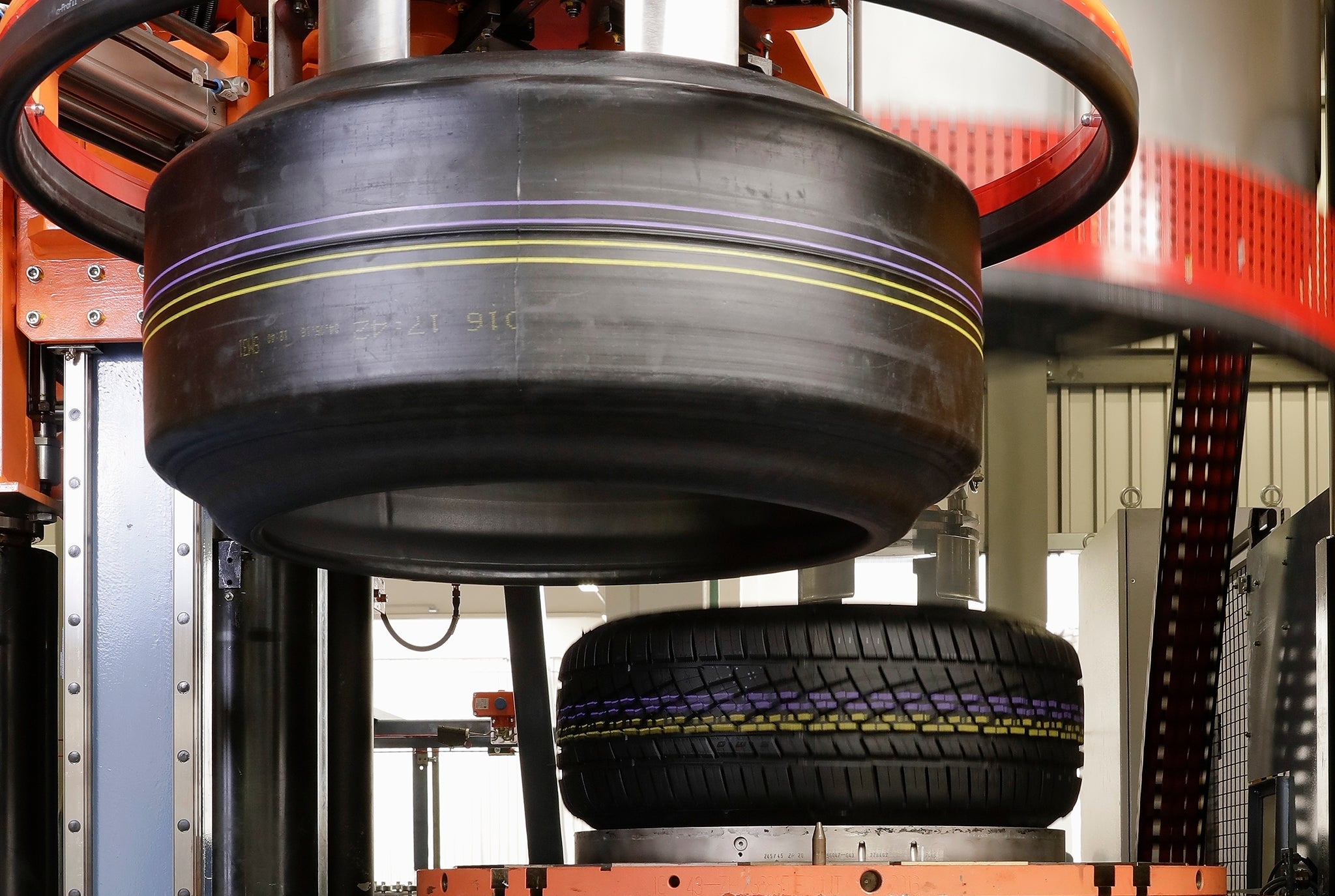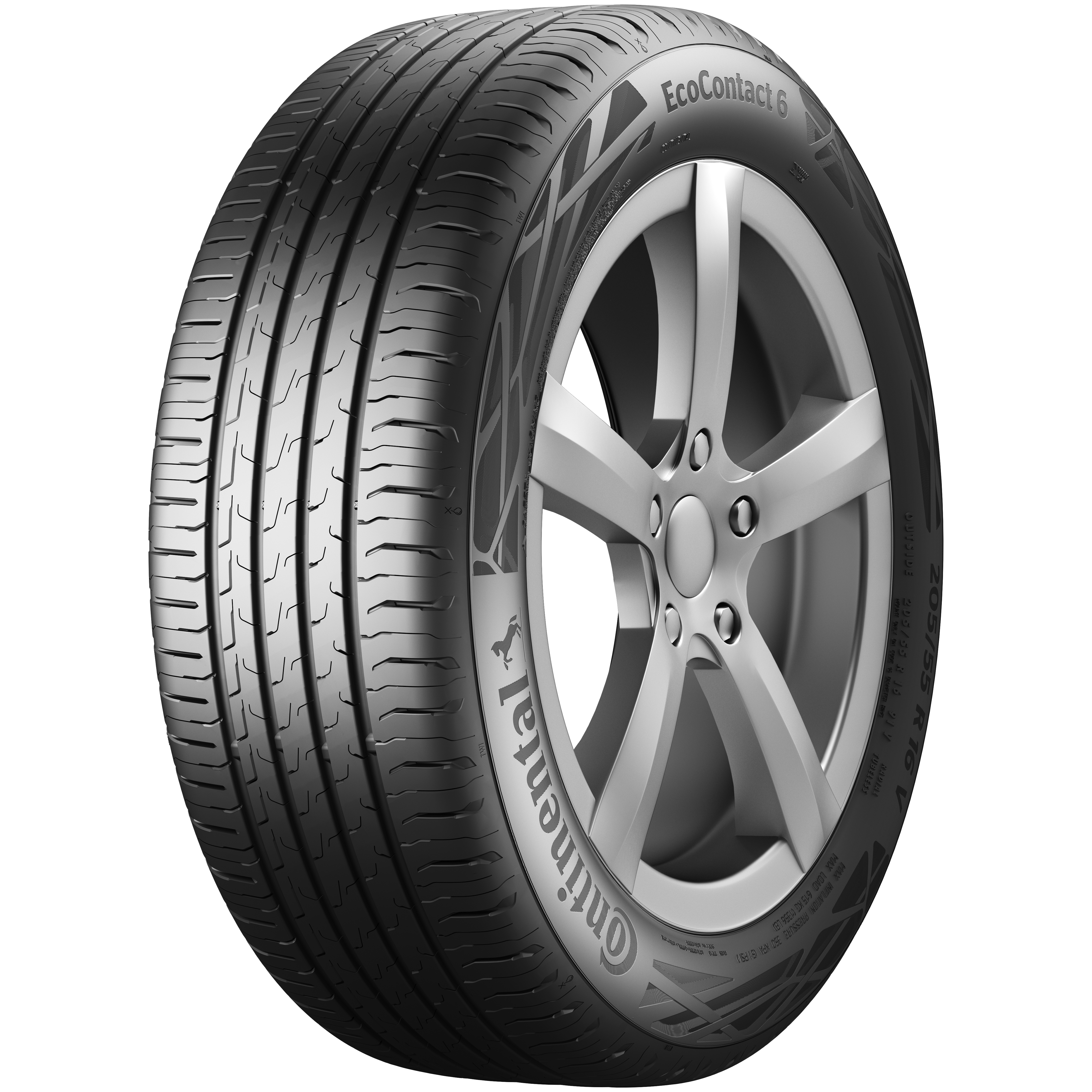# Tire basics
Electric vehicle tires – Everything you need to know
Best tires for electric cars and hybrids
Electric vehicles and low emission hybrid cars are driving the transformation of mobility as we know it. This means it’s time to learn more about the high-tech tires that keep them rolling into an emission-free future. While we don’t quite have to reinvent the wheel, we need to focus on certain aspects of the tire to ensure optimal performance for electric cars. Depending on the vehicle concept, the tire-related requirements can vary from insignificant to significant. Find out about changing tire requirements and our tire innovations at Continental that fulfill the requirements for the electric age.

Increased weight means longer braking distance, high instant torque means high tire wear
Compared to combustion cars, electric drive technology lowers engine noise, emissions, maintenance and running costs. However, one consequence of the many electric vehicle benefits is a significant increase in weight. Batteries are heavy and their weight places additional strain on electric car tires.
Electric engine torque also has a positive and negative side. On the one hand, it means instant acceleration. On the other hand, this high instant torque places additional strain on the tires.
Tire performance for electric vehicles
Learn what our tire expert Nels explains about the meaning of tire performance for electric vehicles:

Our Continental tire innovations meet the main challenges posed by electric vehicles in three ways:
- Tires for electric vehicles carry a heavier load and have to withstand high instant torque, leading to higher tire wear, so we need tires with stronger constructions and more robust rubber compounds.
- Greater mass and increased inertia means longer braking distance, so we place a special emphasis on optimal grip.
- With high instant torque, increased weight, the demand for a long range and lower emissions comes an even greater need for minimal rolling resistance, so tires for electric cars offer a smoother, more energy-efficient and low-impact ride.
Electric and hybrid car tire guide
Choosing the right tires for electric vehicles is essential for an EV‘s efficiency, braking performance and mileage. Here’s what to consider when buying new tires for electric or hybrid cars:
Buy suitable tires for electric car use
By purchasing an e-car or hybrid, you’ve already bought into the future of mobility. Round off your cutting-edge car with forward-looking equipment by choosing tires designed to complement electric vehicle technology. Our premium tire lines from Continental with their state-of-the-art tire technologies already meet the tire requirements that arise for today's electric vehicles.
Check the tire load index
Buying tires that can carry the weight of your car is always important, but it is crucial when choosing an electric car tire. Effectively, due to the weight of EVs, you need stronger tires. You can for example consider XL tires which have been especially developed for use with heavy loads.
Low friction tires for electric vehicles
A tire’s rolling resistance takes on an even greater importance for electric cars. Lower rolling resistance means increased electric range and higher efficiency, while also contributing to your car’s overall sustainability. Our EcoContact™ 6 strikes an optimal balance between tire size and component distribution. A high-tech compound provides robust connections between the silica and the rubber. This allows an optimal adaptation to varying road conditions, which ultimately improves the tire’s rolling resistance and consumption.
Optimum grip for shorter EV braking distance
More weight also means longer braking distance. A good tire can make up for that, so it’s important to use the best rubber compound possible. Our EcoContact™ 6, for example, relies on its premium Green Chilli 2.0 compound with grip additives for improved braking performance, even for heavier EVs.
Low noise tires for electric vehicles
In the absence of engine sound, low noise tires contribute to a smooth and silent driving experience by reducing the amount of tire noise transferred to the passenger cabin. Our tire technology ContiSilent™ is a tire noise-reducing technology which is designed to reduce interior noise on all road surfaces and leads to a greater comfort. ContiSilent™ helps reduce interior vehicle noise up to 9 dB(A), depending on the type of vehicle, its speed and the road surface. It is also available for the EcoContact™ 6 and is compatible with all commonly available rims.
Robust compounds to withstand electric car torque
Electric vehicles boast instant torque, meaning they accelerate the second you put the pedal to the metal. However, the high instant torque of electric vehicles can also increase wear and tear. In addition to good grip, the rubber compound used for EV tires also needs low rolling resistance.

EcoContact™ 6 – our best tire for electric cars
Continental’s tire innovation specialists have risen to the challenges of the mobility revolution. For instance, the EcoContact™ 6 addresses the specific issues raised by the increased weight of EVs and hybrids. It helps to balance the need for low rolling resistance, high grip and sturdiness. Also our other premium tire lines from Continental with their state-of-the-art tire technologies already meet the tire requirements that arise for today's electric vehicles.

Electric car tire protection, care and maintenance
To increase EV tire longevity, maintenance is especially important. As with other tires, you should check the air pressure of your electric vehicle tires regularly and adjust if necessary. Correct wheel alignment will reduce tire wear and should be checked every 6 months, or sooner if you have hit a curb, pothole or other obstacle. An expert can check excessive wear, especially on the inside edge of the tire, and will recommend alignment or rotation, as needed.
If possible, replace tires with original equipment models, which were not only designed for the needs of electric vehicles, but specifically made to fit the precise model you are driving. Continental has provided original equipment tires for Tesla and the Volkswagen ID.3.